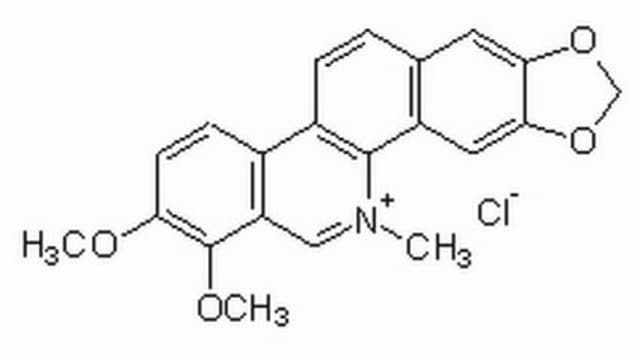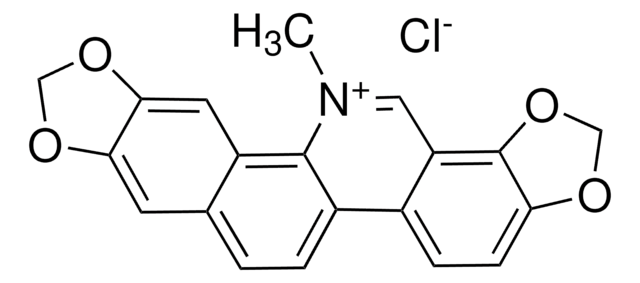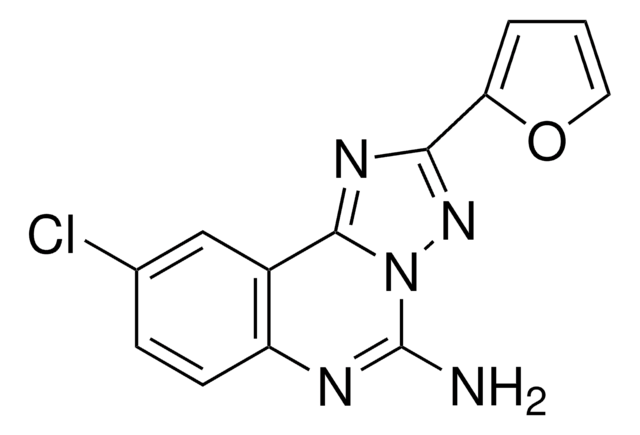C2932
Chelerythrine chloride
≥95% (TLC), powder
Synonyme(s) :
1,2-Dimethoxy-N-methyl(1,3)benzodioxolo(5,6-c)phenanthridinium chloride, Toddaline chloride
About This Item
Produits recommandés
Source biologique
plant
Niveau de qualité
Pureté
≥95% (TLC)
Forme
powder
Couleur
yellow to orange
Pf
213.0-214.0 °C
Solubilité
DMSO: 2 mg/mL
Température de stockage
−20°C
Chaîne SMILES
Cl.COc1ccc2-c3ccc4cc5OCOc5cc4c3[N](C)=Cc2c1OC
InChI
1S/C21H18NO4.ClH/c1-22-10-16-13(6-7-17(23-2)21(16)24-3)14-5-4-12-8-18-19(26-11-25-18)9-15(12)20(14)22;/h4-10H,11H2,1-3H3;1H
Clé InChI
SUPBMPBJXZDANZ-UHFFFAOYSA-N
Vous recherchez des produits similaires ? Visite Guide de comparaison des produits
Description générale
Application
- as a supplement in heat-inactivated late-embryo extract or late-embryo extract to inhibit protein kinase C (PKC) activity
- for in vitro Xenopus experiments
- as a PKC inhibitor in HL-1 cells, to block the PKC pathway to study its effects on doxazosin-induced galectin-3 and collagen expression
Actions biochimiques/physiologiques
Caractéristiques et avantages
Mention d'avertissement
Warning
Mentions de danger
Classification des risques
Acute Tox. 4 Dermal - Acute Tox. 4 Inhalation - Acute Tox. 4 Oral - Eye Irrit. 2 - Skin Irrit. 2 - STOT SE 3
Organes cibles
Respiratory system
Code de la classe de stockage
11 - Combustible Solids
Classe de danger pour l'eau (WGK)
WGK 3
Point d'éclair (°F)
Not applicable
Point d'éclair (°C)
Not applicable
Certificats d'analyse (COA)
Recherchez un Certificats d'analyse (COA) en saisissant le numéro de lot du produit. Les numéros de lot figurent sur l'étiquette du produit après les mots "Lot" ou "Batch".
Déjà en possession de ce produit ?
Retrouvez la documentation relative aux produits que vous avez récemment achetés dans la Bibliothèque de documents.
Les clients ont également consulté
Notre équipe de scientifiques dispose d'une expérience dans tous les secteurs de la recherche, notamment en sciences de la vie, science des matériaux, synthèse chimique, chromatographie, analyse et dans de nombreux autres domaines..
Contacter notre Service technique













